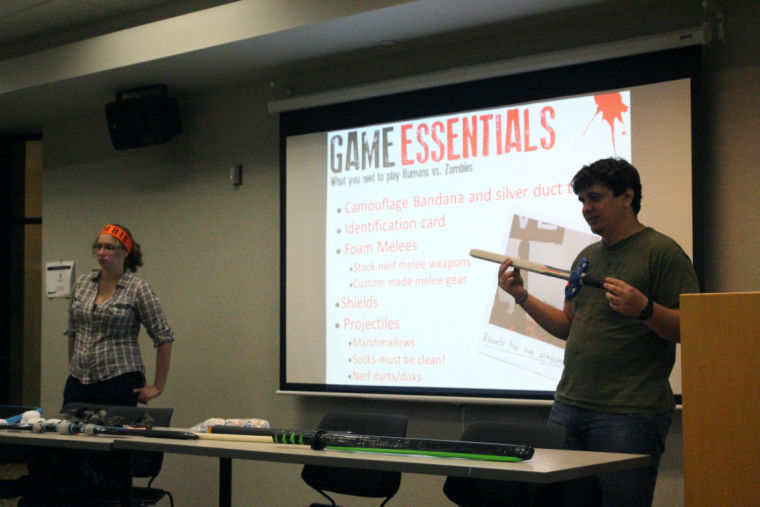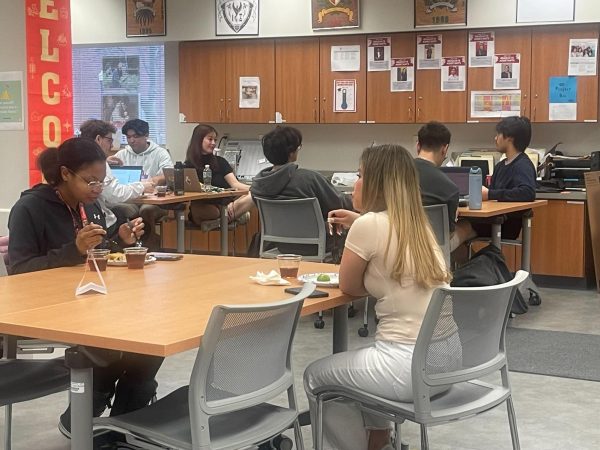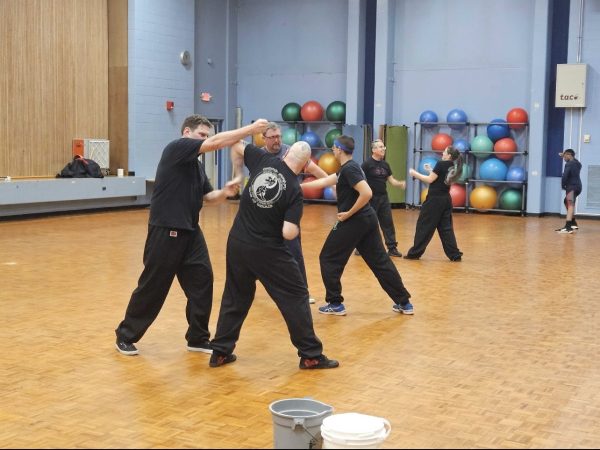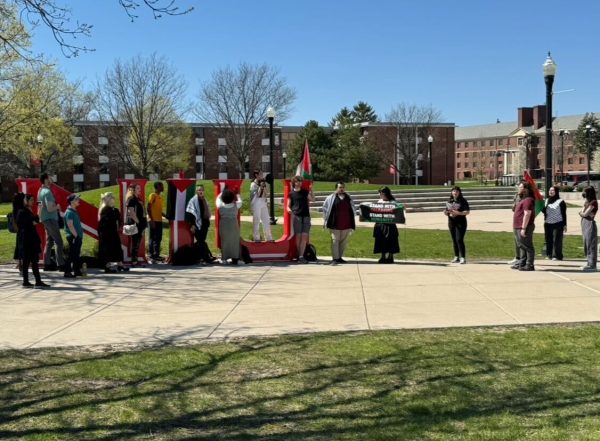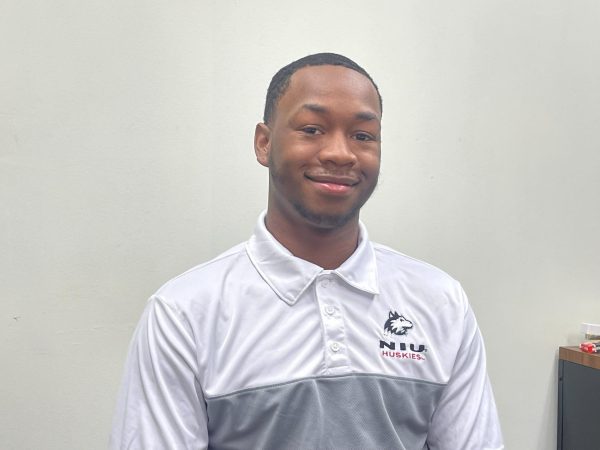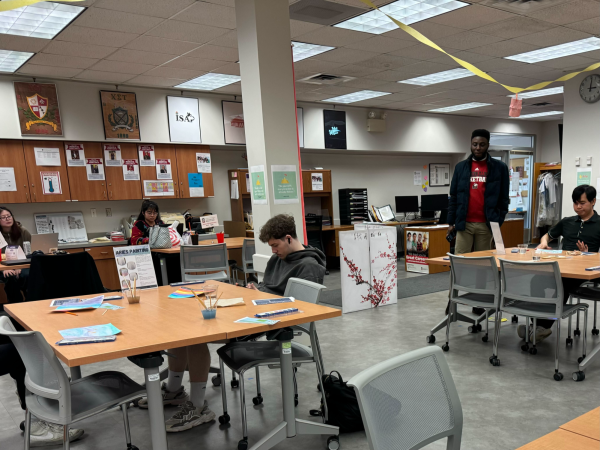Students take down ‘zombies’ in game
October 9, 2013
Students have until Friday to resist their zombie overlords.
The Humans vs. Zombies weeklong fall game has human and zombie teams squaring off until Friday night. The game started Sunday and the infection will sweep across campus as students on the human teams evade “zombies” and try to remain untagged.
“This brings together a lot of people who might not always interact normally,” said Caitlin Giles, Humans vs. Zombies president. “We’ve had a lot of games where there’s really … nerdy sorts of people, all the way to frat guys playing, and it’s sort of a good equalizer because we’re all just running around having a good time.”
Each game begins with one original zombie, an anonymous player disguised as a human who aims to start the infection after gaining the trust of human players. When a human is tagged, or “eaten,” they have to stop playing for an hour while the virus “incubates.” The outbreak lasts all week and gameplay is prohibited inside safe zones, like buildings and cars, but most outdoor places are fair game.
“You have times when you’re by yourself and you’re terrified because you don’t know if there’s going to be a zombie right around the next corner, or 10 zombies right around the corner,” said head game official and longest Humans vs. Zombies member James Mack, a senior computer science major.
Humans and zombies identify themselves by wearing an exposed bandana while they’re playing to let others know they’re part of the game. Humans defend themselves against zombies by “stunning” them with approved “weapons,” including projectiles like marshmallows and swords made of foam and PVC pipe. Some humans aren’t so keen on avoiding the infection and seek out the afflicted.
“They [the Humans vs. Zombies officials] said how some people would go and find the original zombie that first night right at midnight,” said alumnus Jacob Near. “That was me every game.”
The game was brought to NIU in 2006 after Emily Sturnfield and fellow students saw other colleges had the Humans vs. Zombies organization. The group was disbanded from 2009 to 2011, when it gained popularity again.
“Originally this campus had used Nerf blasters, and after the [Feb. 14, 2008] shooting as respect the organization said ‘no more of that,’ and then interest kind of died out,” Giles said.
Members said the game goes beyond the thrill of warding off the undead, and it offers students a chance to meet new people.
“I can definitely say that pretty much all of the friends I have here now are through HvZ,” Mack said.
The next game will be held in the spring semester and students will once again have the chance to take place in the ongoing battle between humans and zombies. For some, it’s the simple pleasures of the game that make it exciting.
“Beating people with swords is a lot of fun,” Giles said.


